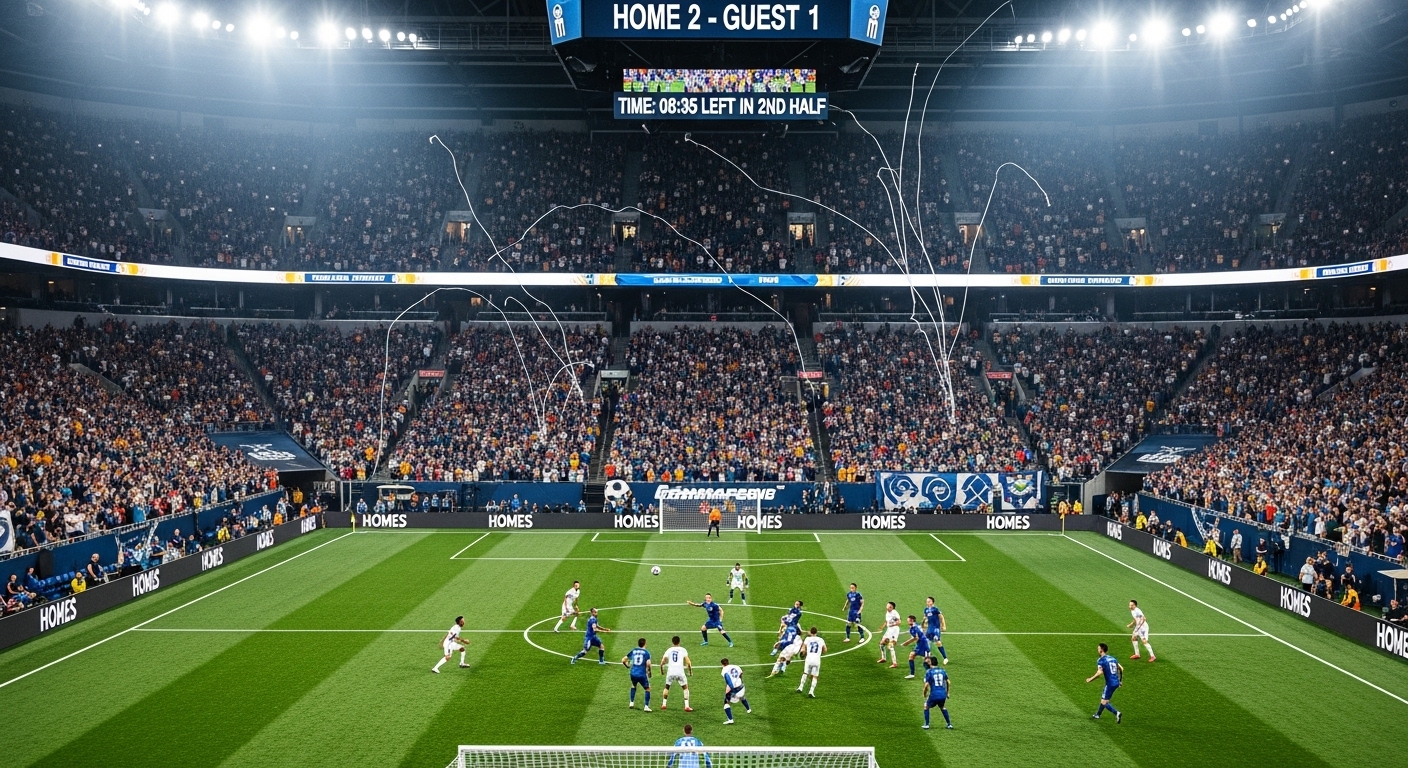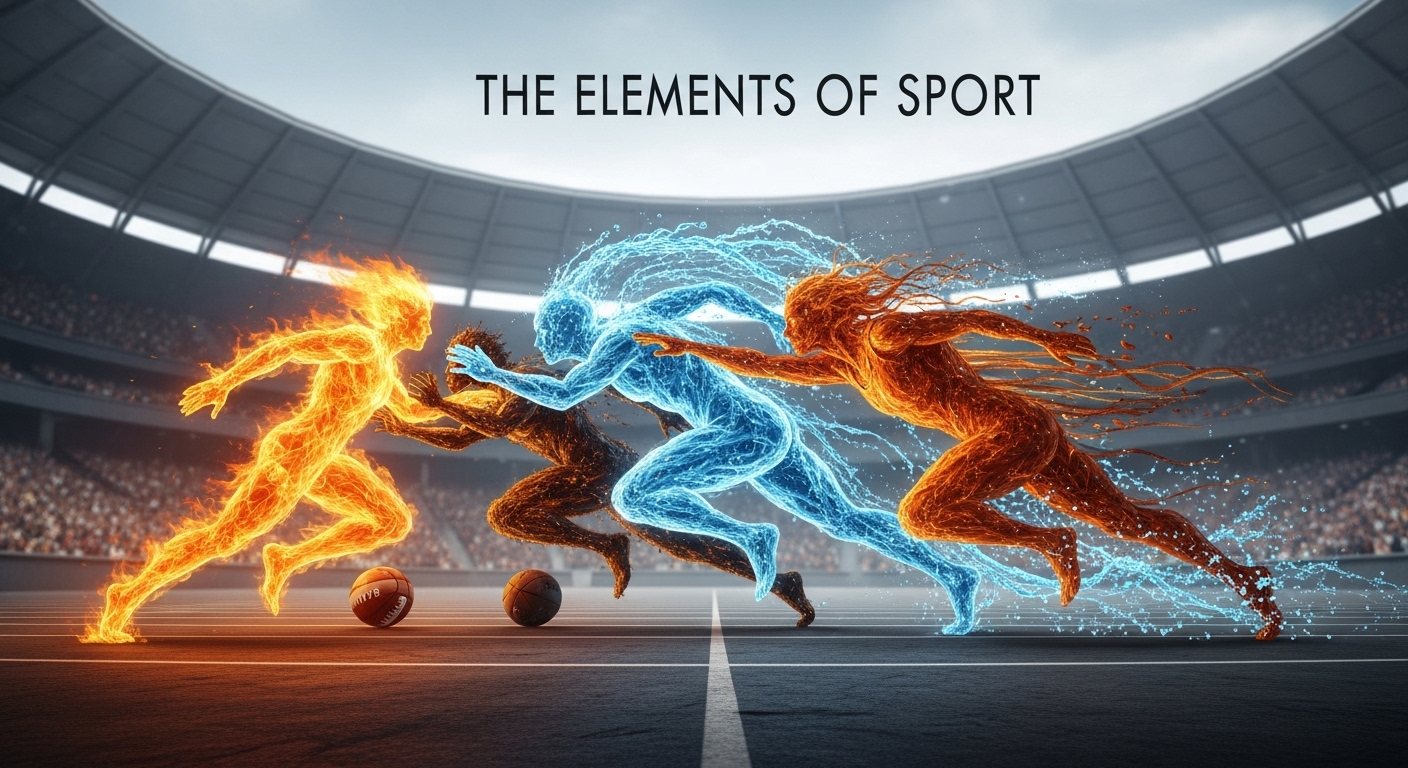Sport is more than just a pastime or a form of entertainment. It is an intricate, multifaceted part of human culture that touches every corner of the world. From the youngest child kicking a ball in the backyard to the seasoned professional breaking records on the international stage, sport has a profound influence on individuals, communities, and societies at large. Its ability to unite, inspire, and challenge is unrivaled, and it continues to serve as a powerful tool for personal development, social change, and cultural connection. In this post, we will explore the many layers of sport, its role in our lives, its impact on our mental and physical health, and how it continues to shape our world in ways we often take for granted.
Sport as a Universal Language
There’s something remarkable about sport: it transcends borders, languages, and cultures. While the rules and nuances of each game may differ, the love for the competition, the thrill of victory, and the agony of defeat are universally understood. Sport serves as a language of its own, one that can connect people from all walks of life, regardless of background, nationality, or socio-economic status. This universal appeal is perhaps one of the greatest strengths of sport.
Take soccer, for instance. Often referred to as the “world’s game,” soccer is played and adored across every continent. Whether you’re in a bustling city in Brazil, a small village in Africa, or the cold landscapes of Russia, the game is understood the same way. Two teams, a ball, a goal—simple yet profoundly engaging. The shared passion for the game can unite diverse groups of people, whether in small community leagues or grand international tournaments like the FIFA World Cup.
The Olympics, too, are a testament to sport’s ability to unite the globe. Every four years, athletes from all nations come together to compete, celebrate their cultures, and foster a spirit of camaraderie. These events not only highlight the athletic prowess of the participants but also emphasize the shared human experience—no matter the differences in language, race, or geography. In such moments, sport becomes a tool for understanding, building bridges, and breaking down barriers that divide humanity.
The Physical and Mental Benefits of Sport
At its core, sport is an avenue for improving physical health. It encourages physical activity, which is vital for maintaining a healthy body. Regular participation in sports promotes cardiovascular health, strengthens muscles, increases flexibility, and improves bone density. From running and swimming to team sports like basketball and soccer, these activities keep our bodies strong and agile, helping us live longer, healthier lives.
Regular physical activity through sport also plays a key role in maintaining a healthy weight. In a world where obesity rates are on the rise, engaging in sports provides an enjoyable and sustainable way to burn calories and stay fit. It’s a fun way to integrate exercise into daily life, making it less of a chore and more of an engaging pursuit.
Beyond the physical benefits, sport has a profound impact on mental health. Exercise, including participation in sports, stimulates the production of endorphins—often referred to as the “feel-good” hormones. These chemicals help to reduce stress, anxiety, and depression, providing a natural mood boost. The sense of achievement, personal progress, and the mental focus required in sports can all contribute to improved mental clarity and emotional stability.
For many individuals, sport is a form of therapy. Engaging in a physical activity like running or yoga can provide a welcome escape from the stress of daily life. Whether it’s a solo activity like swimming or an intense team competition, sport offers an opportunity to clear the mind, reset, and refocus. For those who struggle with mental health challenges, exercise through sport can serve as an invaluable coping mechanism, providing an outlet for both physical and emotional release.
Building Resilience and Character Through Sport
One of the most important lessons sport teaches is resilience. Athletes often face adversity—whether in the form of injuries, setbacks, or losses. Yet it is through these challenges that they learn to persevere and grow stronger. Sport instills a sense of mental toughness that is difficult to develop in other areas of life. When a player loses a game or suffers a personal injury, they don’t simply give up; they train harder, stay focused, and continue to strive for success.
This resilience is something that extends far beyond the playing field. The ability to overcome obstacles, push through pain, and keep trying even in the face of failure is a skill that benefits people in all aspects of their lives. Whether it’s dealing with a difficult personal situation, working through a professional challenge, or managing setbacks in academics, the perseverance developed through sport helps individuals stay committed and stay positive.
Additionally, sport builds character. It teaches athletes valuable life skills such as discipline, responsibility, time management, and leadership. To succeed in sports, athletes must follow strict training routines, set goals, and stay committed to their objectives. These habits translate into other areas of life, making athletes well-rounded individuals who are prepared to tackle a variety of challenges. The dedication required to excel in a sport fosters a strong sense of accountability, as athletes know that their success depends on their commitment and effort.
Sport also teaches athletes the importance of teamwork. In team sports, individuals must set aside personal interests and work collaboratively toward a common goal. This requires communication, trust, and a willingness to support others. These qualities are essential not only for success on the field but also for success in the workplace, at school, and in social relationships.
Sport’s Role in Social Integration and Community Building
Sport has an unparalleled ability to bring people together, not just as competitors but as communities. From local amateur leagues to professional sporting events, the sense of belonging that comes with being part of a team or a fanbase is powerful. It creates bonds that transcend differences, fostering a sense of unity and solidarity.
For many individuals, especially those who feel marginalized or isolated, sport offers an opportunity to connect with others. A local soccer team can become a surrogate family for a child who lacks strong familial support. Similarly, sports clubs, gyms, and recreational leagues provide adults with a way to meet new people and form lasting friendships, often becoming important social hubs within their communities.
Moreover, sport can help break down societal barriers. It has the power to bridge divides between different races, ethnicities, and social classes. In cities around the world, sports initiatives have brought together people from different backgrounds, fostering a spirit of inclusivity and cooperation. Sport offers a platform for mutual respect, where individuals from diverse walks of life can come together with a shared interest and common purpose.
At the professional level, sports are a source of pride for entire communities and nations. National teams, local clubs, and individual athletes become symbols of local identity, and their achievements are celebrated as victories for the entire community. The collective joy of watching a team win a championship or supporting an athlete in an international competition can be a unifying experience for people who otherwise might not have much in common.
Sport and Its Role in Economic Development
While the physical, emotional, and social benefits of sport are well-documented, the economic impact of sport is often underestimated. Sport drives substantial economic activity, creating jobs, fostering local businesses, and contributing to the growth of entire industries. Major sporting events, such as the Olympics or the FIFA World Cup, inject millions of dollars into the host economy, creating temporary employment and promoting tourism.
Local sports clubs and recreational leagues also play an important role in the economy by creating jobs for coaches, trainers, referees, and other professionals. The sports industry encompasses a wide range of sectors, including media, merchandising, event management, and sports marketing. As such, sport is a key contributor to job creation and economic growth, particularly in cities and regions where sports are a major part of the cultural fabric.
In addition, sport can have a transformative impact on urban development. Cities that host major sports events often experience improvements in infrastructure, including better transportation, stadiums, and public facilities. These upgrades benefit both the local community and tourists, leaving a lasting legacy that extends beyond the event itself.
The Future of Sport: Diversity, Technology, and Inclusivity
The future of sport is bright and full of potential. As society continues to evolve, so too does the landscape of sport. One of the most exciting aspects of this future is the growing emphasis on diversity and inclusivity. Women’s sports, for example, have seen remarkable growth in recent years, with more opportunities and recognition than ever before. The visibility of female athletes, from Serena Williams to Megan Rapinoe, is inspiring the next generation of young women to pursue their athletic dreams.
At the same time, adaptive sports for individuals with disabilities are gaining more attention and support. Organizations like the Special Olympics and the Paralympics have helped to provide a platform for athletes with disabilities to showcase their skills and compete at the highest levels. As society continues to embrace inclusivity, the future of sport will see even more representation from diverse groups, making it a truly global and accessible activity for all.
Another key development in the future of sport is the increasing role of technology. From advanced performance analytics to virtual reality training, technology is transforming the way athletes train, compete, and engage with fans. Fitness trackers and smart devices allow individuals to monitor their physical progress, while digital platforms bring fans closer to the action than ever before. The rise of esports also highlights the changing definition of sport, with competitive video gaming becoming a mainstream phenomenon that attracts millions of viewers worldwide.
Sport will continue to evolve in response to technological innovations, changing social dynamics, and global trends. The future holds endless possibilities, and as the world becomes more interconnected, sport will remain a unifying force that inspires, motivates, and brings people together.
Conclusion: Sport’s Enduring Impact on Society
Sport is a powerful force in our lives, shaping who we are as individuals, as communities, and as a global society. It offers countless benefits—from improving our physical and mental health to fostering social integration, economic development, and international unity. Whether it’s through personal achievement or the collective experience of cheering for a team, sport has the ability to inspire, challenge, and change us in profound ways.
As we look ahead, sport will continue to be a driving force for positive change, pushing us to be better, work harder, and connect with one another on a deeper level. The values that sport teaches—resilience, discipline, teamwork, and respect—are essential for navigating the complexities of modern life. And as long as the passion for competition and camaraderie exists, sport will remain an integral part of our shared human experience.



